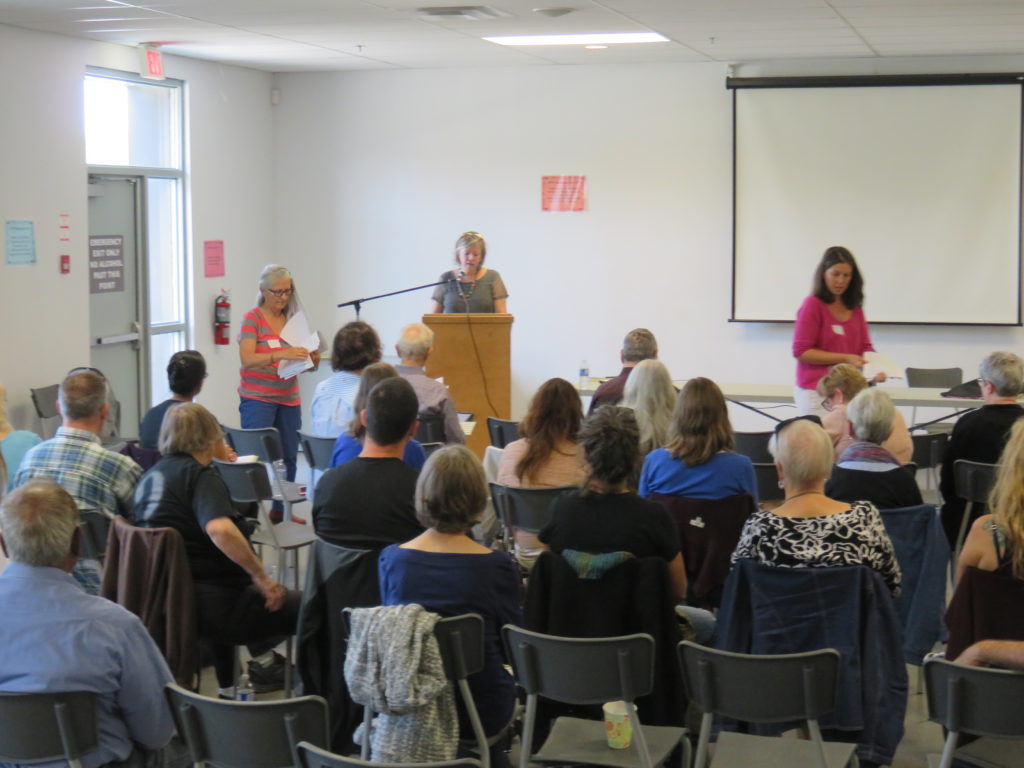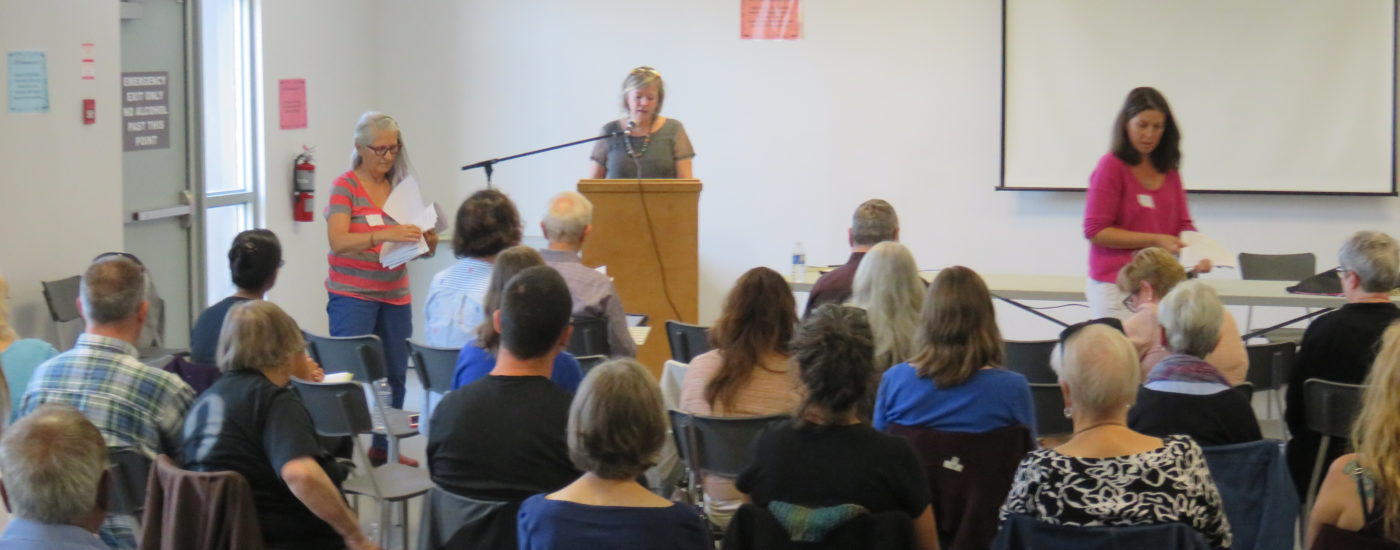
Have you ever read a scene that left you breathless and in total awe of the writer’s skill? Of course you have. Readers read to become immersed in other worlds and to derive pleasure from their imaginations. Writers know that to capture that imagination, they must use a plethora of skills and tools.
On January 18, we were treated to a workshop with Sue Reynolds called The Image/Moment—based on the works of the method writing guru, Jack Grapes—which introduced us to another creative writing tool.
In the two-hour session, which included a chance for participants to hone their skills, Sue talked about how we can use this technique to make readers hold their breath from one moment to the next by expanding psychological time. We learned how to set up an interval where nothing happens but the reader is left breathless.
The writer approaches the moment by setting up ‘bookends’—a simple line of dialogue or an action/gesture—at the beginning and at the end. In between, we stretch real time (a few seconds) into psychological time by using the 7 Elements of the Image/Moment. Using this method allows the writer to ‘show, not tell’ quite effectively.
Sue’s workshop gave us a new skill, as well as a chance to practice it and get feedback. What are some of your favourite writing tools?
Upcoming Events

If you have a tendency of writing yourself into a corner and discovering that the plot bunny you were chasing morphed into a dust bunny and left you without, well, a way out? What about exploring those fun yet mysterious rabbit holes that take you to strange places (like poor little Alice)? Do you find yourself lost? Stuck? Off the beaten path? Having difficulty seeing your story for all that distracting… fur? Then this is the workshop for you! Register here.

WCYR is pleased to have Richard Scrimger join us to share insights about plotting our works in progress. Richard compares plotting to baking: “You can work from scratch or from a mix. Both approaches taste great!” Richard will review some suggested dos and don’ts related to plotting. Bring your pencils or writing devices, as there will be a participation segment. Register here.

Harry Potter, Hannibal Lecter, Sherlock Holmes – why do readers connect with certain characters and how can we do the same? Explore some of the techniques successful writers use to develop the people in their stories. Through practical in-class exercises, group discussions and personal reflection, participants will experiment with different approaches to character development. Be prepared to discover new characters and enrich the ones you’ve already brought to the page. Open to all levels of experience and genres in fiction and creative non-fiction. Register here.

Leave a Reply
You must be logged in to post a comment.